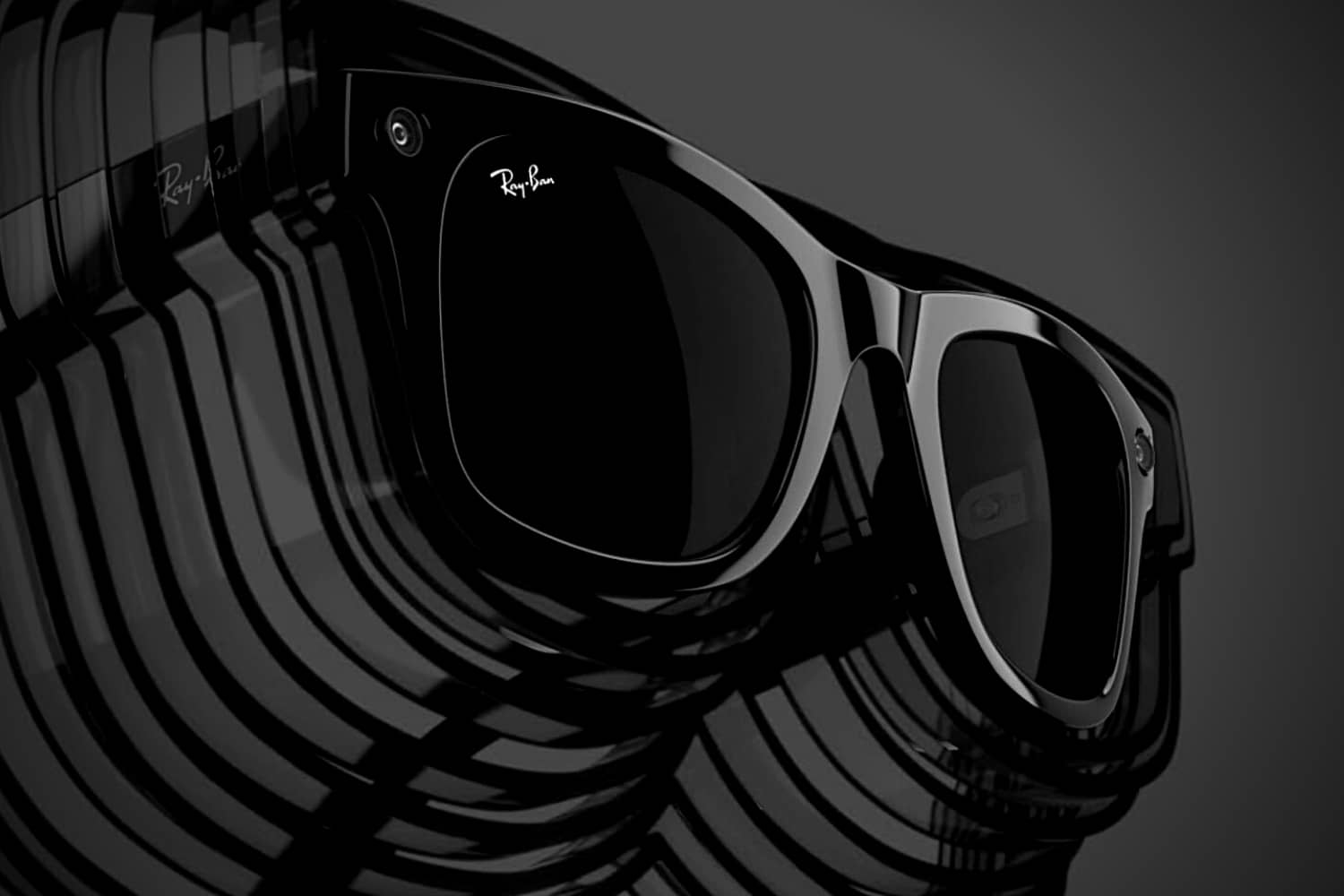
16 Sep Privacy Pros On Ray-Ban’s Smart Glasses
Google “glassholes” were not met kindly by the general public. Whether Facebook and Ray-Ban can do better is up for debate.
London – Sep. 1, 2021
Facebook and Ray-Ban are collaborating on the next generation of smart glasses, and once again, questions have been raised concerning our right to privacy in our day-to-day lives.
It does not seem so long ago that Google retired Glass. The product made its debut back in 2013 and early adopters were invited to test out the kit, consisting of a customized metal band, a touchpad, a camera, and a small display that utilized augmented reality to tap into the user’s Google services.
Google launched Glass in order to solicit the feedback of the general public and to refine its design. However, it was not long before the perceived intrusion into the lives of others prompted backlash; not only in the coining of the term “glasshole” to describe a creep but to the point that some testers were attacked in public.
Google Glass was a failure when it came to consumer adoption and was eventually pivoted to business use cases. Despite this, something was achieved: the product was a catalyst for a debate around smart clothing and accessories, surveillance, and how tolerant the general public is to being recorded, potentially without their consent.
Many societies today are under high levels of surveillance. China, for example, has an estimated 415 million surveillance cameras, and the U.S. National Security Agency (NSA) is known for its widespread, mass data collection. Other countries are also experimenting with facial recognition-equipped cameras, AI, and body cameras, to name a few technologies, the latter of which are becoming common.
It may be that body-worn cameras are tolerated as there is a purpose to them, such as in the case of law enforcement. However, when you attempt to introduce cameras close-up in other settings, this may provoke concerns surrounding our privacy.
Facebook and Ray-Ban’s partnership, revealed on Sep. 9, describes “Ray-Ban Stories” as “smart glasses that give you a new way to capture photos and video, share your adventures and listen to music or take phone calls — so you can stay present with friends, family and the world around you.”
The glasses contain dual 5MP cameras able to capture images and video, and while more discreet than Glass, experts have warned that there are a range of privacy and security issues to consider — as well as potential legal ramifications, too.
As noted by Malwarebytes, the first potential issue is one of the vendors themselves. Facebook has already earned itself a tarnished reputation when it comes to data collection and security due to the Cambridge Analytica scandal, and so the idea of placing even more data into the firm’s hands may be a difficult one for some consumers to swallow.
Another problem is the potential abuse of the glasses for covert recording. In an interview with the BBC, Facebook head of AR and VR Andrew Bosworth said that as an LED has been embedded in the glasses and there is a need to either press a button or use a voice command to start recording, this is more “overt” than someone using their mobile phone — which is widely accepted in social settings.
“I think there’s a lot more opportunities for bystanders to know, and this isn’t something we left to chance,” Bosworth told the publication. “We knew this was one of the most important things to get right.”
However, Nigel Jones, co-founder of The Privacy Compliance Hub, disagrees, and told Cybersecurity Ventures that the glasses are an example of “privacy creep,” with corporations appearing to be “seeking to invade our privacy in ever more nefarious ways.”
“Security cameras with face recognition software wrongly identify people as criminals; cameras scan us as we use the self-serve checkouts at Boots and in the supermarket,” Jones commented. “And now people can put on a pair of glasses and film us or our children without us knowing. Having a small white light on the frame to show the glasses are filming is no solution to the privacy threat that these glasses pose.”
Boris Cipot, senior security engineer at Synopsys, told us that we shouldn’t forget that all technology today can be used — and abused, and vendors have an overall responsibility to introduce safeguards.
Cipot argues that there is no difference between taking a photo with your handset or using other gadgets — such as fitness trackers — to collect data, or choosing to take images with smart glasses.
However, it is the vendor’s responsibility to “do their best” in maintaining the privacy and security of users.
“[Vendors] will have to show that they are aware of potential threats, and do their best to keep the privacy of the user and those around them high on the agenda,” the security expert says. “Any step out of this trust agreement would then be considered a breach or misuse. This is how it should be today.”
While the impact of camera-equipped glasses is yet to be seen, UK director and lawyer Will Richmond-Coggan, from Freeths LLP, told us that this technology could provoke a “range of privacy challenges” as well as legal issues, if smartwear is alleged to be the source of data leaks or the exposure of customer data.
“In a business setting, most employers would also be concerned about the scope for industrial espionage or infringement of their confidentiality commitments to customers, let alone complaints or challenges from other employees,” Richmond-Coggan noted. “Anyone keen to be an early adopter of this new technology would be well-advised to do so with their eyes open to the risks.”
Smartphones, body cameras, and glasses, however, may not be the end of the story — and if “privacy creep” is occurring, the adoption of future forms of smartwear could also require businesses to take further action.
While it might seem overblown today, according to Chris Hauk, Pixel Privacy consumer privacy champion, “there may come a time when certain business meetings will be prefaced by a full body scan to detect smartwear.”
– Charlie Osborne is a journalist covering security for ZDNet. Her work also appears on TechRepublic, Cybercrime Magazine, and other media outlets.
Go here to read all of Charlie’s Cybercrime Magazine articles.



 –
– 